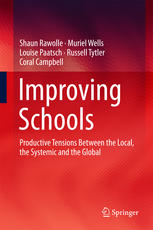

Most ebook files are in PDF format, so you can easily read them using various software such as Foxit Reader or directly on the Google Chrome browser.
Some ebook files are released by publishers in other formats such as .awz, .mobi, .epub, .fb2, etc. You may need to install specific software to read these formats on mobile/PC, such as Calibre.
Please read the tutorial at this link: https://ebookbell.com/faq
We offer FREE conversion to the popular formats you request; however, this may take some time. Therefore, right after payment, please email us, and we will try to provide the service as quickly as possible.
For some exceptional file formats or broken links (if any), please refrain from opening any disputes. Instead, email us first, and we will try to assist within a maximum of 6 hours.
EbookBell Team

5.0
50 reviewsThis unique book explores school improvement policy – from its translation into national contexts and school networks to its implementation in leader and teacher practices in individual schools and classrooms within this network of schools and its impact on students’ learning. It draws on multiple conceptual and theoretical resources to explore the complexities attached to a school improvement process in a network of schools in Australia. These conceptual and theoretical resources include discourse, practice, representation and network, concepts common to both policy research as well as studies of leadership and classroom practice. They lead to a more detailed understanding of the intersections between educational policy and intervention processes, and the complex reality of school processes and teaching practices. In the book we trace the implementation of school improvement policies through its multiple phases, levels and contexts. Our data-collection and analysis methods draw on a variety of perspectives in the way different players perceive their roles and the nature of the initiative and the ways in which these intersect. The research findings are used to seek productive approaches to school improvement that combine policy integrity with local flexibility. The book contributes to the school improvement literature through its exploration of tensions between global and systemic settings and local practices and histories.